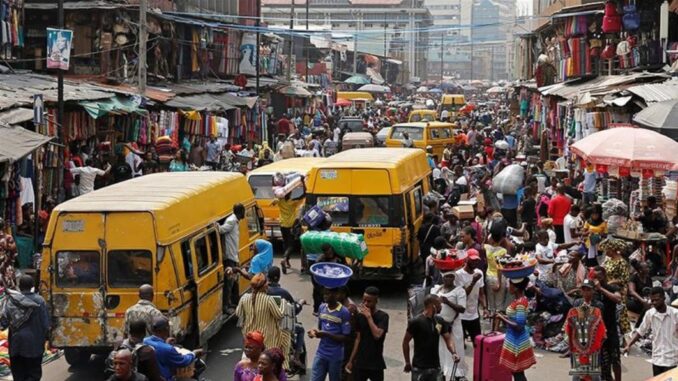
The Purchasing Manager’s Index (PMI) a leading economic statistics indicator, has confirmed Nigeria slipped into its second recession in July, the third quarter of 2020. This was caused by dwindling oil revenues and the corona virus pandemic. In quarter 2, Nigeria’s National Bureau of Statistics (NBS) reported that the economy contracted by 6.1 percent. An economy is said to be in a recession when output contracts for two straight quarters. The average PMI for July, August, and September- the third quarter, was 45.3 points. Whenever PMI is below 50 points, it is a sign of contraction; while a reading above 50 points signals expansion.
Nigeria could outperform many advanced and sub Saharan African countries, but the cause of our failure is darker particularly when our GDP is unpacked. For example, the wholesale and retail trade sector of our economy recorded the biggest contraction ever at -16.6 percent in Q2 of 2020. This dipped further to -12.12 percent in Q3. This sector is home to Micro Small and medium Scale Enterprises (MSMEs) which accounts for more than 85 percent of jobs in the economy. The contraction of this magnitude explains the direct impact of corona virus pandemic on the people. Compared to the USA, retail trade grew by 2 percent reflecting the government’s $1.6 trillion stimulus package given households to ameliorate the effects of the pandemic.
Thus, the economy deteriorating to recession is deplorable, given the years of snail paced growth of our GDP and high unemployment endured. Indeed, widening poverty, accelerating inflation and declining disposable income among other deleterious issues are unacceptable in today’s Nigeria. Hence we urge the return of Ministry of Economic Affairs as established by President Olusegun Obasanjo. The ministry should be staffed by economists who are to formulate worthwhile policies, supervise and implement them across the board. In Germany the Minister of the Economy is the deputy chancellor, where the chancellor is the chief executive of the country. That is how important the economy is.
Government must focus on alleviating the suffering of the masses. One way is to enthrone a loans scheme for any Nigerian can apply, not that you have to be young or be a farmer. Such a scheme should be channeled to the states in the manner of the Marshall Plan organized for war ravaged Europe by George Marshall, a former US secretary of state. Since we cannot find any outstanding economist in President Buhari’s cabinet, it will be advisable for him to go to the Nigerian Economic Summit Group (NESG). Moreover, NESG, in a recent document hinted on the need to address the matter of high insecurity in the country and its impact on businesses.
With a misery index of 39.9 percent, Nigeria isn’t only reeling from rising unemployment, but also in high inflation. This means there is a mismatch between the earning capacity of people and the cost of living in Nigeria. The current data on the rates of inflation and unemployment should give policymakers the direction they must focus on.
To boost employment, government must provide credit easily and cheaply. This means revoking regulations which stifle businesses. Government must rework the Economic Sustainability Plan to be more realistic. The Mass Housing Strategy envisaging the creation of 1.8 million jobs with the building of 300,000 houses in a year is impossible. If government intends building tents, then it is possible. Which education and experience do your policy makers come from?
To get out of the recession, because the cost of governance in Nigeria is the highest in the world, it must be reduced via a comprehensive national austerity measure. About 120 percent of our total accruable revenue is expended on political office holders and civil servants; with senators and members of House of Representatives reportedly earning salaries and allowances that are putting a heavy strain on the national economy. All that must be pruned down.
We must in addition revisit the fiscal, socioeconomic, regional control of resources and governance framework of the Republican Constitution of 1963 and adopt them. The Constitution of 1999 must be accordingly amended in terms of regional autonomy, resource control vested in the regions and the restoration of part time legislation. The three loss- emitting refineries should be sold along with the Nigerian National Petroleum Corporation. Let the regions establish their own oil revenue collecting corporations.
It is deplorable the amount of cars, motor cycles and tricycles being imported to Nigeria in the last ten years without government compelling them to be manufactured locally. It is tragic that the Abuja Kaduna expressway has been overtaken by bandits. It is shocking that we now pay kidnappers for the rescue of our loved ones; with the ransom paid being funneled to sponsoring kidnappers, gun totting herdsmen and motor cycle riding hoodlums. Moreover, it’s incomprehensible why government cannot contract an electricity provider like the General Electric of the USA to fix our electricity supply conundrum all these years.


Be the first to comment